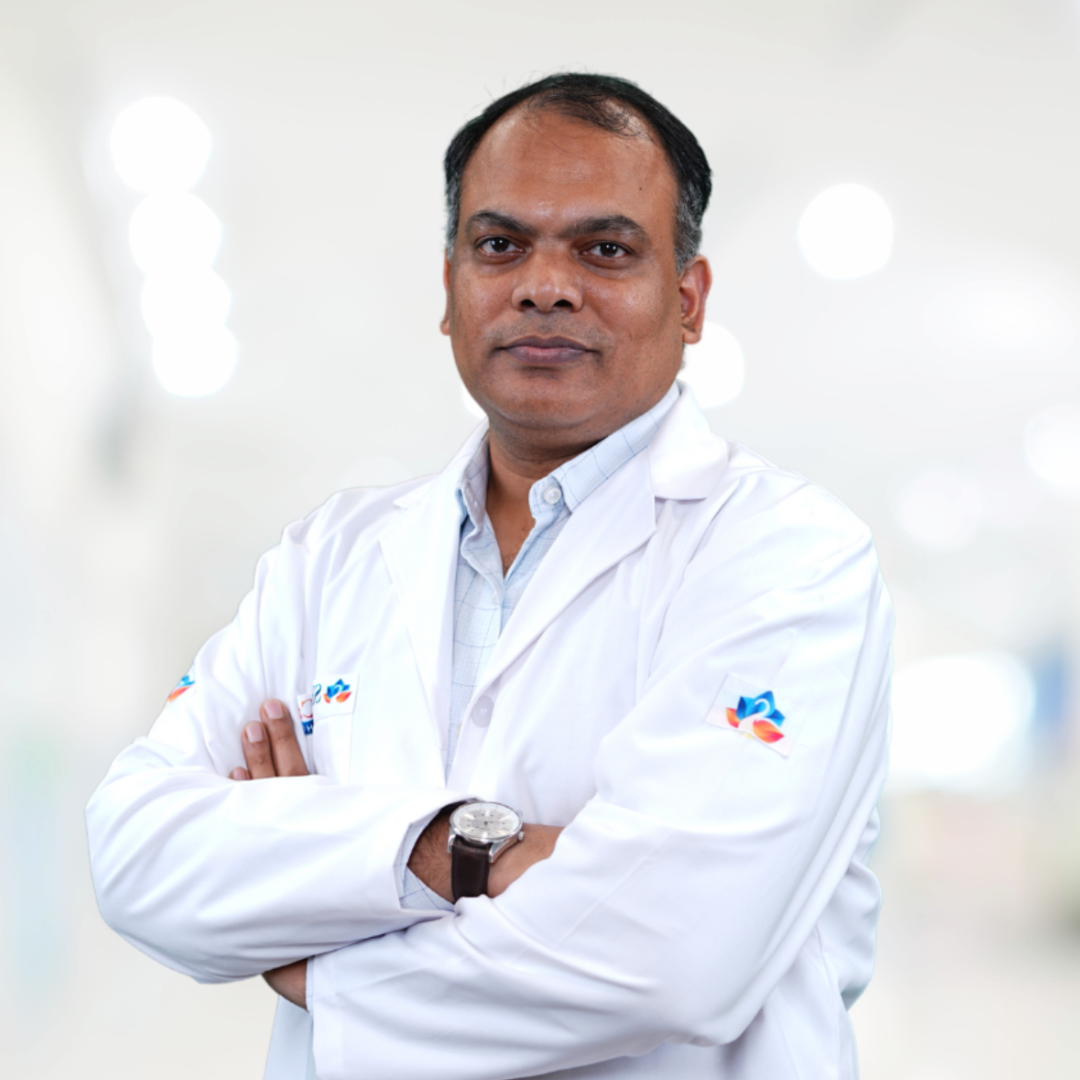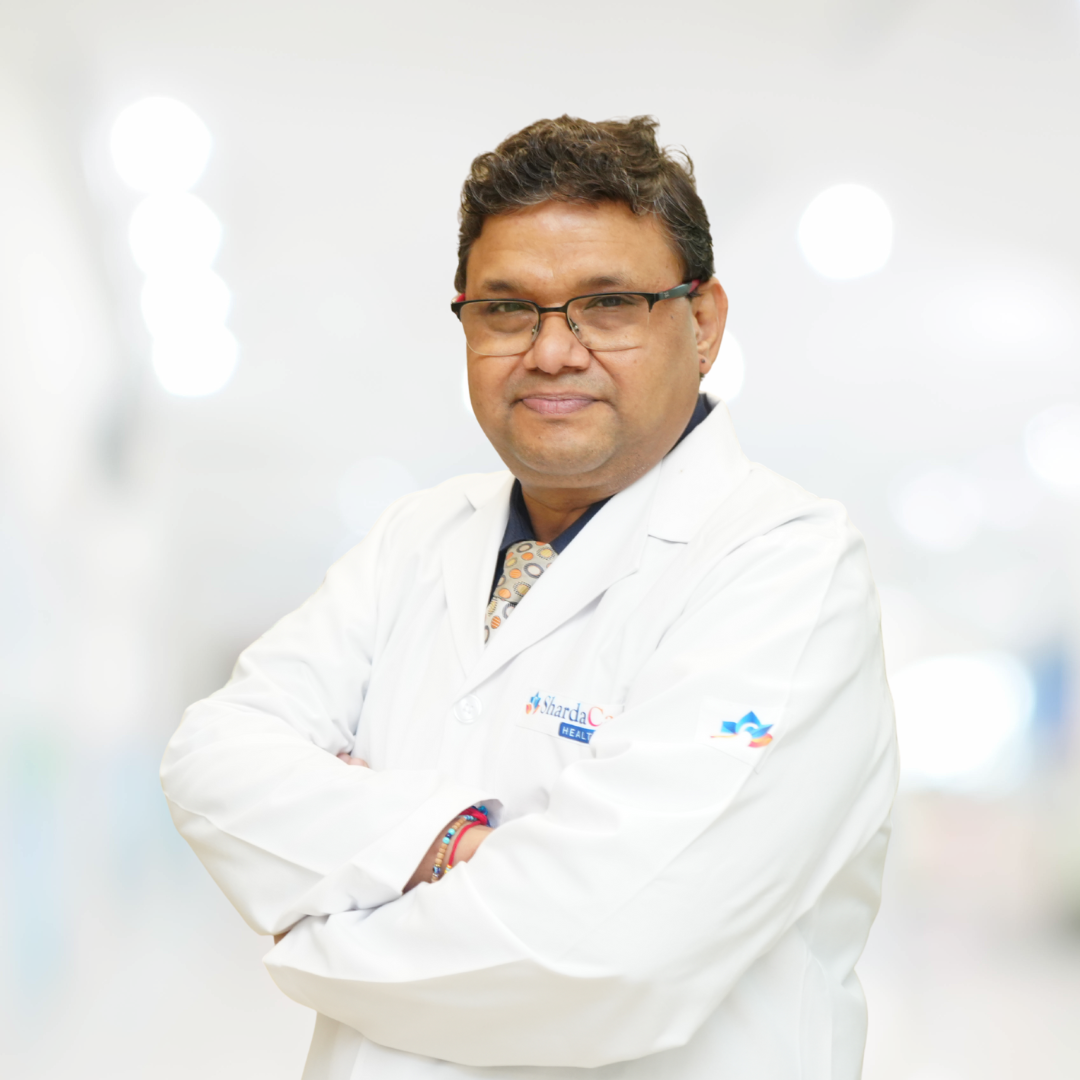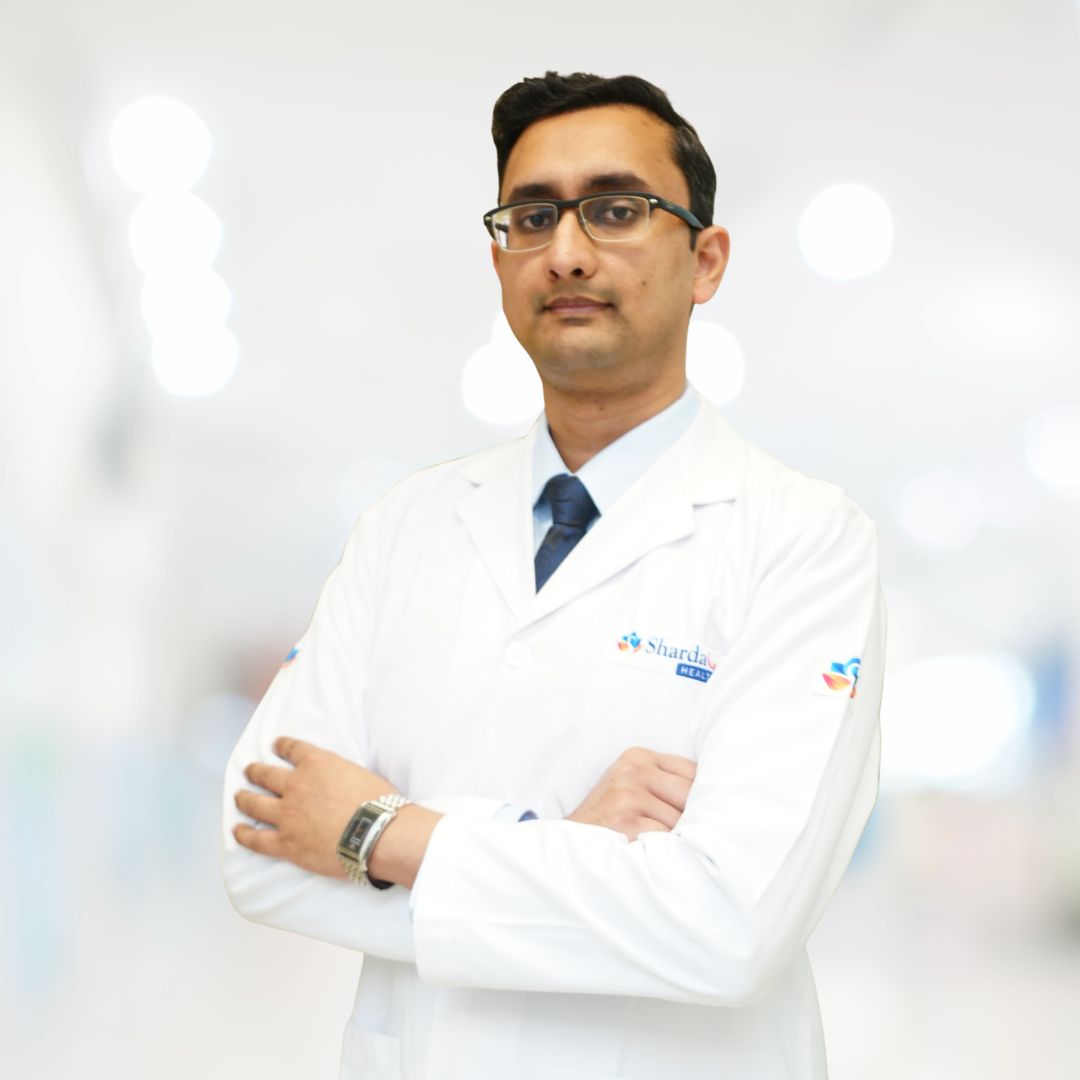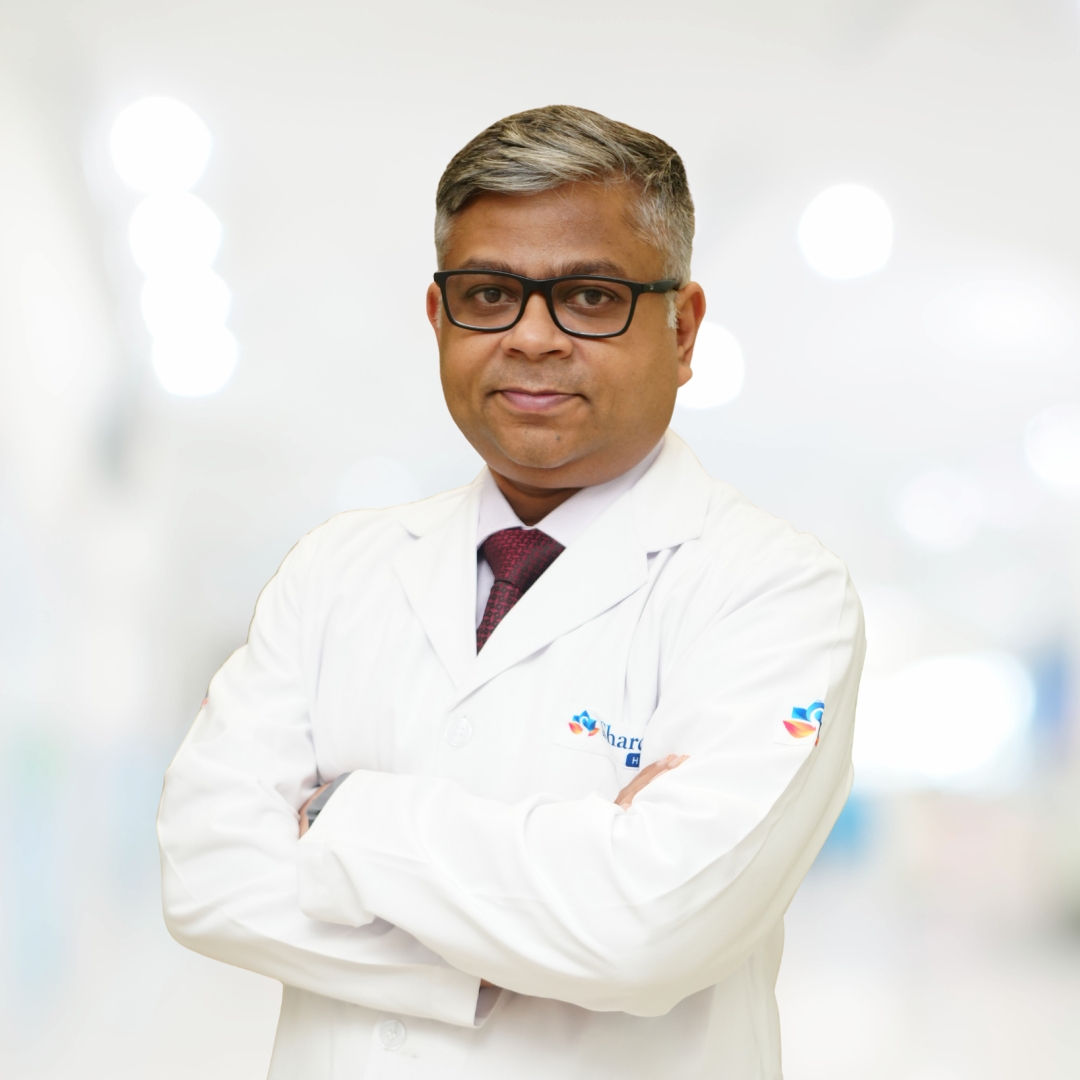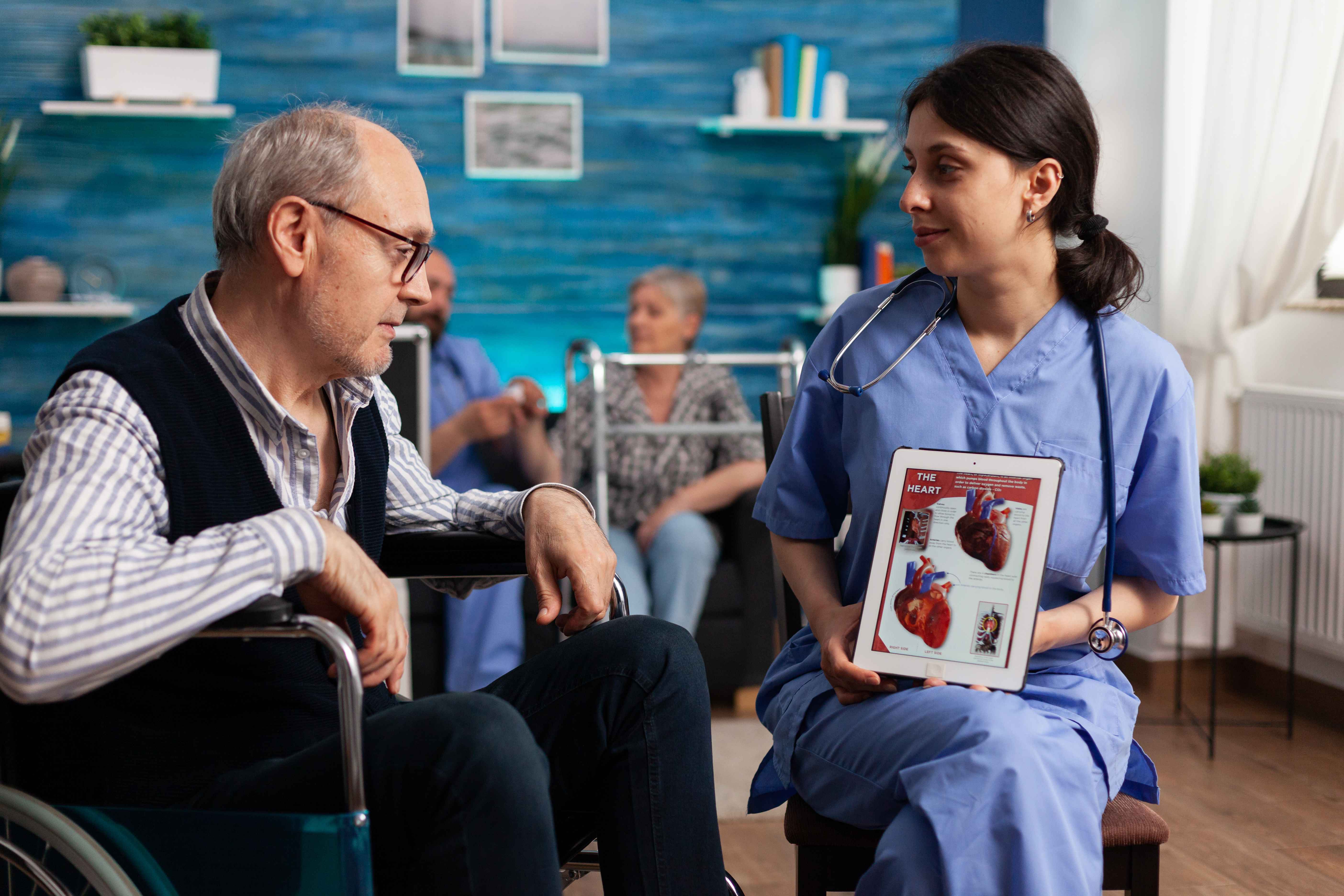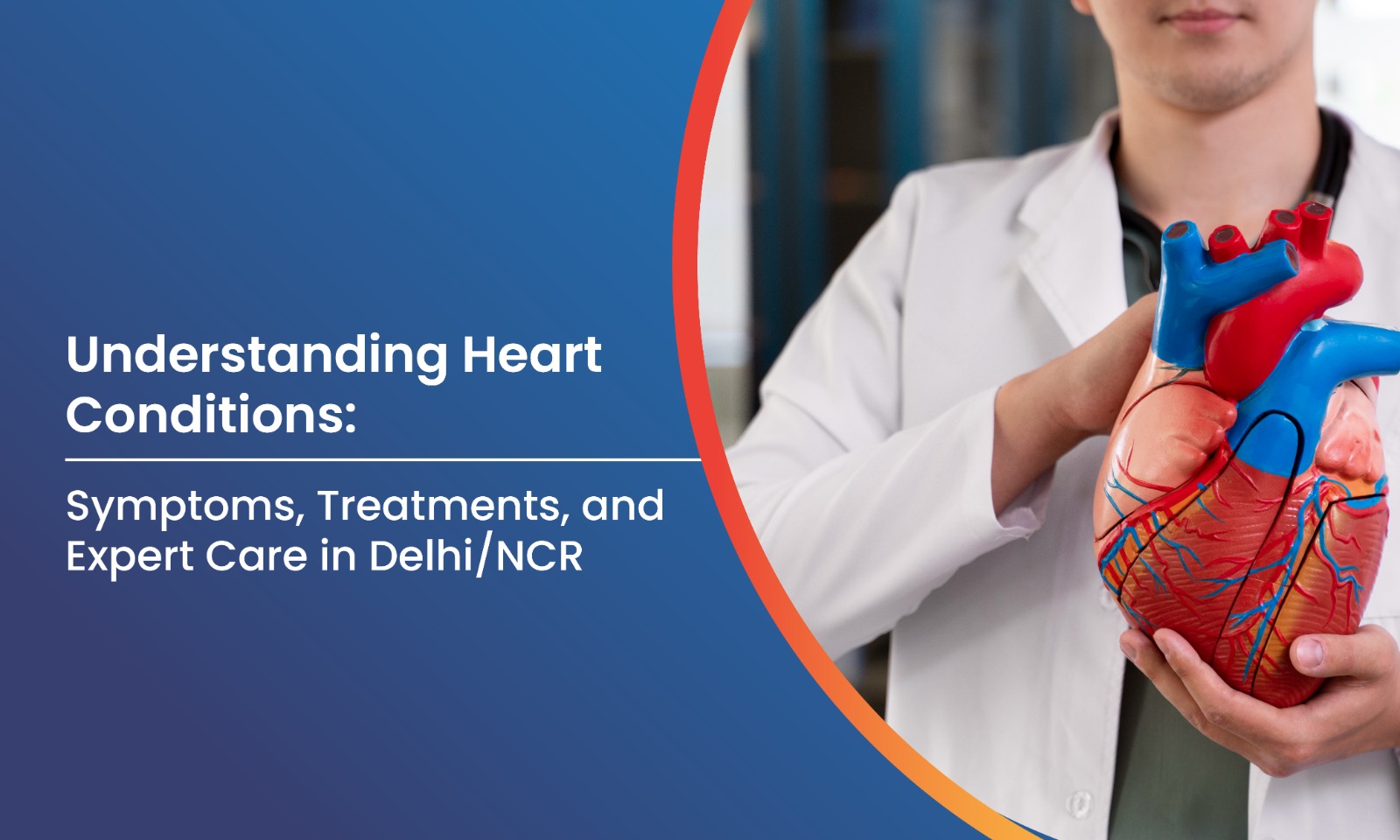
Vascular Surgery & Blood Vessel Care at ShardaCare – Healthcity
Vascular surgery, an essential speciality in healthcare, focuses on the intricate network of blood vessels throughout the body. This system, comprising arteries, veins, and lymphatic circulation, plays a crucial role in overall well-being. At ShardaCare - Healthcity , our vascular surgeons meticulously diagnose and treat diseases affecting these pathways, excluding those of the heart and brain. Using a range of interventions from medication to minimally invasive procedures and surgical reconstructions, they ensure the proper functioning of these vital conduits.
Common Conditions Addressed by Vascular Surgery
The prevalence of vascular diseases, encompassing disorders affecting blood vessels and circulation, has seen a notable rise in India over recent years. Some of these conditions include:
Carotid Artery Disease:
Carotid artery disease manifests as the narrowing or blockage of the neck arteries supplying blood to the brain. Often originating from the buildup of fatty plaques, severe cases with a high stroke risk may necessitate vascular surgery for optimal management and prevention.
Deep Vein Thrombosis (DVT):
Deep vein thrombosis refers to the formation of clots within deep veins, posing the risk of dislodgment towards the lungs, potentially resulting in a life-threatening event. When medications alone prove insufficient to restore healthy circulation, procedures performed by vascular surgeons offer a crucial solution for effective management and patient safety.
Atherosclerosis:
Atherosclerosis arises from the accumulation of fats and cholesterol in artery walls, leading to blockages. In severe cases, vascular surgery becomes necessary to restore blood flow and reduce the risk of serious cardiovascular events.
Varicose Veins:
Varicose veins, characterized by dilated and enlarged veins, primarily affect the lower extremities, causing discomfort and cosmetic concerns. In cases of treatment-resistant symptoms, vascular surgery effectively resolves the condition by addressing underlying venous insufficiency.
Causes of Vascular Diseases
- Atherosclerosis: Plaque buildup in the arteries narrows and restricts blood flow.
- Hypertension: Prolonged elevated blood pressure can damage blood vessels.
- Diabetes: Increases the risk of atherosclerosis and damages small blood vessels.
- Smoking: Damages blood vessel walls and increases the risk of atherosclerosis.
- Obesity: Excessive weight strains the heart and blood vessels.
- High Cholesterol: Elevated cholesterol levels lead to plaque buildup in arteries.
- Family History: Genetic predisposition can increase the risk of vascular diseases.
- Sedentary Lifestyle: Lack of physical activity contributes to poor circulation and vascular issues.
- Age: Natural wear and tear on blood vessels increases the risk of vascular diseases.
- Poor Diet: High consumption of unhealthy fats, sugars, and processed foods contributes to vascular problems.
Preventive Measures for Vascular Diseases
Before considering surgery, our consultants prioritize guiding patients toward risk factor modification to prevent disease progression or recurrence. Recommendations may include:
- Smoking Cessation: Encouraging and supporting efforts to quit smoking, a significant contributor to vascular disease.
- Diabetes Management: Providing guidance and resources for managing diabetes effectively to mitigate its impact on vascular health.
- Healthy Dietary Modifications: Advising on dietary changes to promote heart health and reduce the risk of vascular diseases.
- Appropriate Footwear: Recommending footwear that not only prevents but also addresses any existing vascular issues, promoting overall foot health.
Looking for an Expert
Sharda Care The Healthcity is home to some of the eminent Doctors in the world.
Book an Appointment


